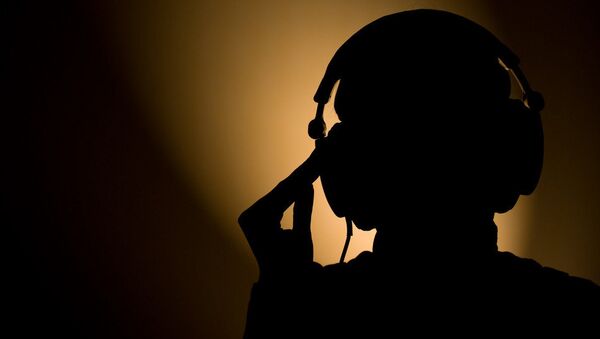The report, which used information from the Edward Snowden files, revealed that the UK Government Communications Headquarters (GCHQ) had targeted French politicians such as former World Trade Organization head Pascal Lamy, former cabinet director of the French deputy minister for foreign trade Emmanuel Glimet, as well as Anne-Marie Idrac, deputy cabinet director of economy minister Christine Lagarde.
The British spying took place as the world financial crisis hit in 2008 and 2009, and it appears that the UK wanted to know France's position prior to crucial trade negotiations like the G20 summit in London in April 2009.
Despite the gravity of the revelations, the French government has declined to condemn the UK's interceptions of its communications, Damien Lempereur of the party Debout la France (France Arise, DLF) told Sputnik France.
"Unfortunately this is not surprising because there was already barely any reaction, or absolutely none, when the previous tapping was reported, when Germany was also affected," Lempereur said.
In 2013 former CIA and NSA employee Edward Snowden leaked details of extensive internet and phone surveillance by US and UK intelligence, which collected and shared information on millions of ordinary people, as well as intercepting the communications of European politicians.
"France reacted very sluggishly while Germany reacted much more actively, which seemed completely normal by the way. This, again, shows a kind of subordinate position to our American allies, which is shocking but not surprising," Lempereur said.
French MP Jerome Lambert, a representative of the left-wing SRC in the National Assembly, told Sputnik that the revelations demonstrate the extent of spying on public figures and the public, even among countries which are considered to be allies.
"Today's technology allows this kind of behavior. It might be disturbing, but in fact political leaders, military leaders and businesspeople all over the world have to know that wherever they are, their phones can be tapped in most countries of the world."
Countries are ready to tap the communications of "anybody else, whether they are allies or not, because when it comes to economic affairs nobody is considered an ally," Lambert said.
The Le Monde report, produced in collaboration with The Intercept, also reveals that GCHQ also targeted African heads of state such as the Presidents of Kenya, Nigeria, Ghana and Sierra Leone, African business leaders, telecommunications employees and the UN Development Program. The US National Security Agency (NSA) and GCHQ also tapped mobile phones used on board commercial aircraft, including Air France.





